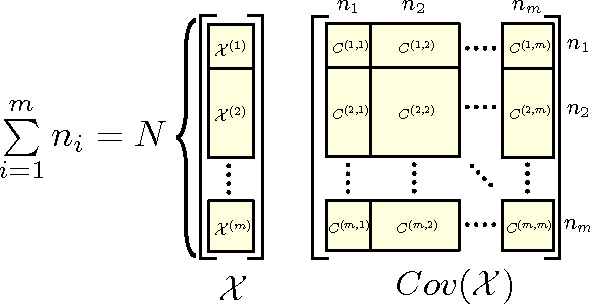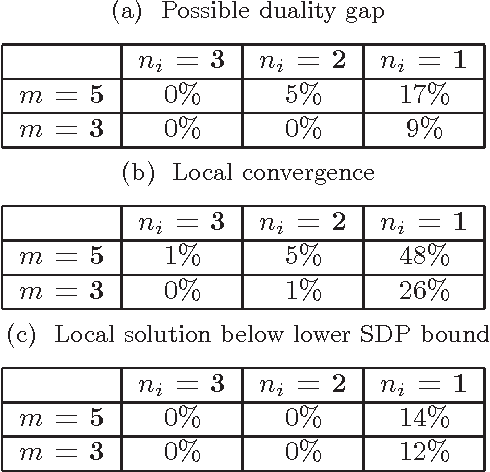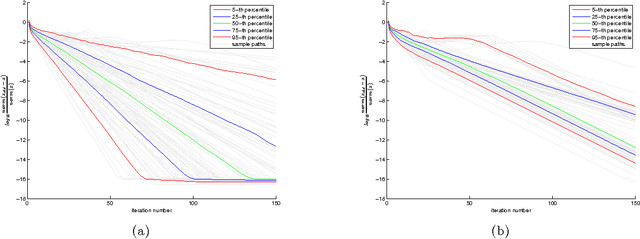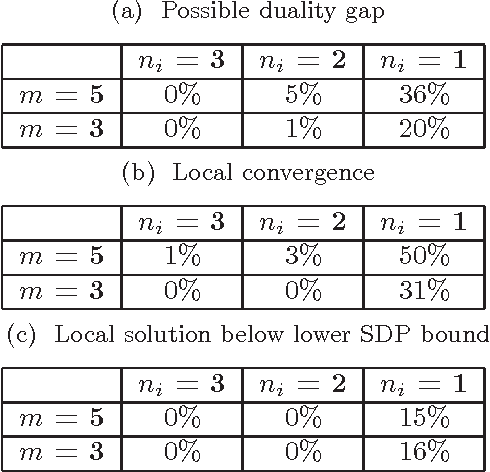A Comparison of Relaxations of Multiset Cannonical Correlation Analysis and Applications
Paper and Code
Feb 05, 2013



Canonical correlation analysis is a statistical technique that is used to find relations between two sets of variables. An important extension in pattern analysis is to consider more than two sets of variables. This problem can be expressed as a quadratically constrained quadratic program (QCQP), commonly referred to Multi-set Canonical Correlation Analysis (MCCA). This is a non-convex problem and so greedy algorithms converge to local optima without any guarantees on global optimality. In this paper, we show that despite being highly structured, finding the optimal solution is NP-Hard. This motivates our relaxation of the QCQP to a semidefinite program (SDP). The SDP is convex, can be solved reasonably efficiently and comes with both absolute and output-sensitive approximation quality. In addition to theoretical guarantees, we do an extensive comparison of the QCQP method and the SDP relaxation on a variety of synthetic and real world data. Finally, we present two useful extensions: we incorporate kernel methods and computing multiple sets of canonical vectors.
 Add to Chrome
Add to Chrome Add to Firefox
Add to Firefox Add to Edge
Add to Edge